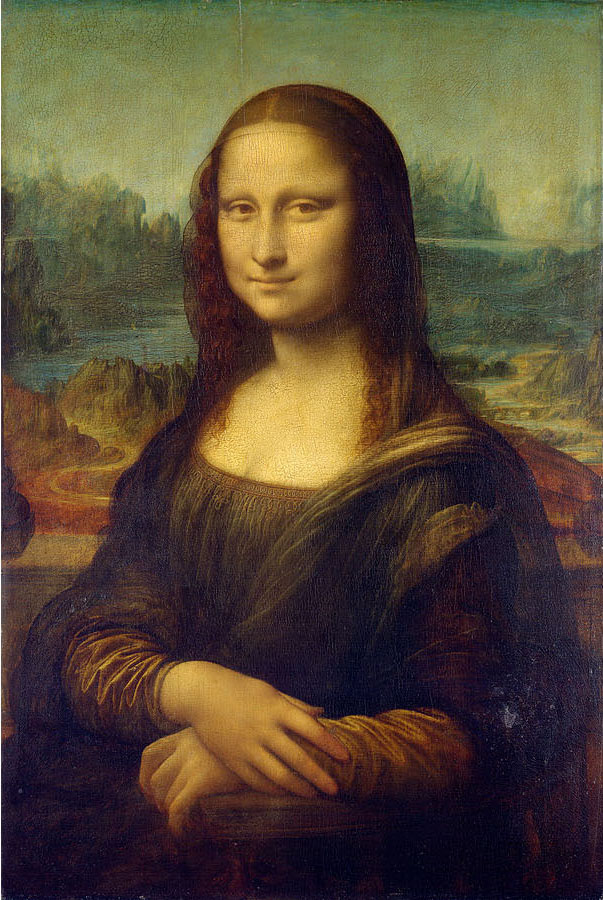How to solve the economic crisis: Initiatives inspired by the teachings of Plato and Confucius
Article By James H Lee
 The modern liberal economic system has proven incapable of solving the economic and financial crises in the world,using traditional solutions. Initiatives undertaken by brave men and women whose creativity and determination inspired by timeless teachings of Plato and Confucius are showing the way.
The modern liberal economic system has proven incapable of solving the economic and financial crises in the world,using traditional solutions. Initiatives undertaken by brave men and women whose creativity and determination inspired by timeless teachings of Plato and Confucius are showing the way.
The term “State” initiated by the Treaty of Westphalia in 1648 (1) refers to a geographical area where people are governed by sovereign law. A state in the philosophical sense is a state of consciousness. Whenever a state in the geographical sense has succeeded in developing a timeless and spiritual awareness, ivilizations have lasted thousands of years (e.g. Egypt, India and China). Today, almost all states are secular and it is the Pax Americana (2), which sets the World’s rules of the game.
The world today is experiencing an unprecedented economic and financial crisis, where solution cannot be found in standard fiscal stimulus or monetary policy, but which need a complete change of the level of consciousness. A restoration of moral values is needed to escape the current realm of greed, selfishness and material interest.
The End of History or the return of cyclical history?
The fall of the Berlin Wall in November 1989 marked a turning point in modern history. It was the final victory of democratic capitalism and the refusal of Communistic atheism. A new era of peace, similar to the Pax Romana (3), seemed at hand (4). The nineteen years that followed saw the rise of ultra-liberal capitalism with unprecedented prosperity based on a rapid expansion of the financial system, deregulation of markets and an unprecedented explosion of inequalities.
On Monday, September 15, 2008, to everyone’s amazement, the old and prestigious investment bank Lehman Brothers (5) went bankrupt. It was the largest bankruptcy in the history of the United States, creating a shock wave that drove the world economy into the worst economic crisis since 1929. Global stock markets collapsed, under a “tsunami” of panic selling. The global financial system was paralyzed by fear, as all bank assets became suspicious; the global economy teetered on the edge of an abyss. However, the central bank technocrats and the International Monetary Fund (IMF) had learned the lessons of 1929. In fact, they acted quickly, by flooding financial markets with unprecedented credit and put in place a safety net by guaranteeing bank deposits, and acting as “lenders of last resort”. They thus avoided disaster, by buying time for politicians to implement intelligent and necessary reforms.
Alas, over the past five years, the European economies have been incapable of responding: resulting in rising debt and unemployment; and social instability. Worse, vital reforms for the future remain blocked due to fierce political divisions and powerful lobbies. As predicted by Plato and Alexis de Tocqueville (6), the flaw of democratic systems (7) is its inability to act for the collective good.
Europe in stalemate
In Europe, the self-healing process has been painfully slow. In fact, economic stability is maintained uniquely through the generosity of the European Central Bank (ECB) and, ironically, it is the only organization capable of acting in a dysfunctional political system (8). In truth, European democracies are following the path of Third World decadence, in which the only solution is the printing press to create money, in the hope that politicians will find intelligent solutions (9). But wise solutions are rarely implemented in the face of powerful lobbies and man’s egoism. Europe is trapped in a vicious circle. Thus, the “end of history” according to linear view of Hegel and Fukuyama (10) has been refuted by China’s take-off (11), coinciding with a declining America and a comatose Europe. Thus a radical change of logic is needed to resolve this systemic crisis: by switching from the exclusive “or” to the inclusive “and” advocated by Plato and Confucius.
The crucial question is how to get out of this long crisis. To quote Jorge Santayana, American writer and philosopher (1863-1952), “those who do not learn history are doomed to repeat it.”
What lessons can be learned from this crisis compared to 1929? The American economist Paul Robin Krugman (Nobel Prize in 2008) provides the economic consensus on this topic: the financial system is useful, but is too fragile (including Iceland, Ireland, Cyprus, Spain, USA…) when its critical final goal (financing long-term investments) is circumvented by speculation and short-term profit motives. Governments have enormous powers to avoid financial disasters. But, in the face of lobbies and political divisions, democracies typically fail to enact vital reforms to ensure a sound financial system (12) with equitable growth, except in extreme cases of deep crisis.
This summary is correct, but all the wise solutions (including Paul Robin Krugman’s) to drastically reduce the size and to supervise banks and the stock exchange better are based on the “politically correct” assumption that capitalism is the best system possible! Of course it is always possible to save “Private Ryan” (13) by renovating the capitalist system through adjustments to regulations and governance. However, we believe that liberal capitalism is in a terminal phase. Moreover, it was the surge of delirious greed and speculation that plunged the world into this deep crisis. Hence, as the problem is systemic, all sustainable solutions will imperatively require a return to the moral values proposed by Plato and Confucius twenty-five centuries ago.
Building a new world?
For over sixty years, Education and Justice (values evoked by Plato and Confucius) have been included in all the programmes proposed by the International Monetary Fund (IMF), the World Bank and democracies. Hence, what can we offer that is new? In truth, even if we follow the wise and politically correct recommendations of democracies, these efforts are doomed to failure! Why: because the proposed reforms are still based on the model of Western materialistic values that led the world into a dead end of waste and conspicuous consumption. The fundamental problem is that despite the progress of science, the state of man’s consciousness has changed very little to include a global perspective. Thus, as governments are powerless to produce the “public” or “metaphysical” goods necessary, it is up to non-governmental organizations (NGOs) and individuals to act in their place (14)! But isn’t this proposal pure utopia?
Faced with this crisis, several contemporary figures provide interesting experiments that have changed the fate of millions of human beings by their determination and dream of a New World.
Here are their examples:
Mohammad Yunus is a Bangladeshi economist and entrepreneur; awarded the Nobel Peace Prize 2006, for his outstanding pragmatic solutions to help the poor. On a visit to the village of Jobra (near Chittagong University where he taught) he met a group of forty-two women who made bamboo stools. Because they lacked capital to buy the materials, local merchants lent them just enough to buy raw materials; but in exchange, they were obliged to sell their production at a fixed price, just above the price of these materials. Mohammad Yunus was surprised to discover that the total financial needs of these women, to develop their business independently, was only $27; but the usurers imposed an effective interest rate of 1000% per year! Thus, he lent these women his own funds, without interest or collateral (15), allowing them to sell their stools at better prices and to break the vicious cycle of debt that enslaved them. Rich from this experience, Mohammad Yunus founded the Grameen Bank in 1976 (16) to provide micro-finance to the poor. Today there are more than ten thousand similar institutions in eightyfive countries with one hundred and ninety million customers that have enabled millions of to escape poverty. But behind these impressive numbers, there is a philosophy of helping the poor to stand up on their own feet! This project is thus a realization of the vision of Plato and Confucius, based on individual responsibility, honesty, social solidarity and human dignity. This banking system is thus based on the principle of: “act for those who act” evoked by Ptah Hotep, Vizier of Ancient Egypt, circa 2400 B.C.
For conventional banks, the first rule is that you lend only to people who do not need money! Thus, the concept of micro-finance was a true revolution, as it made small loans to the poor without collateral at a reasonable interest rate. What is surprising is that almost all clients of microfinance are women (97 %) and loans are granted to groups of five who guarantee repayment (17). A new loan is possible, but only after the repayment of the first (with the possibility of extending the loan). In fact 96.7% of the loans are repaid, which shows the honesty and reliability of poor borrowers. Another innovation is that the client must have a savings account and make a minimum (even very small) deposit each month. They must also sign a charter similar to that of a religious primary school (18) based on moral behaviour! Thus, the Grameen Bank is truly a project of civilization!
“It is the people who must save the environment. It is the people who must change the mentality of their leaders. We cannot be intimidated. We must defend what we believe in and cannot allow ourselves to be intimidated”, said Wangari Muta Maathai (1940-2011), nicknamed “The Green Woman” (19), the first African woman (Kenyan) to win the Nobel Peace Prize in 2004. Sixth child of a poor peasant family, she became a professor of biology and anatomy of Veterinarian Medicine. She was also an activist for women’s and human rights and an ardent environmentalist. As Kenya, and all of the sub-Sahara, is threatened by a chronic lack of water and erosion of topsoil, she launched the project “The Green belt movement” by planting seven trees for Earth Day. Its goal was simple: plant trees to save Kenya and the world. When the media came to interview her, she explained the purpose of the project and then said, “That’s enough now, everyone with me into the fields!” It is with this vision of human solidarity and militancy that she managed to plant thirty million trees in Kenya for the public good: a wonderful inspirational example for all the world’s idealists.
The father of Bill Gates, William Henry Gates III, founded the Gates Foundation. Bill Gates is the founder of Microsoft. With his wife Melinda form one of the richest couples in the world; as well as bequeathing almost all their wealth to this charity ($36 billion), followed by Warren Buffet (20) who bequeathed the same amount in 2006. The Gates had a huge fortune but were outraged by the injustices in the world — especially the huge disparity between life expectancy in rich, as opposed to poor countries (21).
In fact, three diseases in the Third world, kill 5.4 million people a year: malaria kills one million; TB 1.9 million, mostly in Africa and AIDS a further 2.5 million; 1.8 million in sub-Saharan Africa. These diseases are controllable through research and development. But Gates discovered that almost all of the research budgets of the big pharmaceutical companies are targeted and cancer, obesity and hair loss! As regards AIDS, treatments exist but they are impossibly expensive for the Third world (22).
Clearly, pharmaceutical companies are not motivated to invest in research on tropical diseases or helping victims of AIDS in the Third World! (23). Faced with this impasse, since 1994, the Gates Foundation has donated $ 9.6 billion and vaccinated 55 million children in the Third world! (24). Finally, pharmaceutical companies very embarrassed by bad publicity, have eased access rights to medicines in the Third world (25). And the governments of the United States and the United Kingdom, equally embarrassed by these humanitarian gestures, have also increased their own contributions to the World Health Organization (WHO)
Thus, the examples cited above demonstrate that anything is possible if you dare to dream of a new and better world. Hence, it is not necessary to be a billionaire, but only a citizen with a conscience, to act in the world.
(1) The Treaty of Westphalia concluded the Thirty Years War and Eighty Years War on October 24, 1648, and put in place a permanent system of international sovereignty.
(2) “Pax Americana” refers to American hegemony in the world and the relative period of peace between the West and other major powers since the end of World War II. The United States thus plays the role of the world’s policeman.
(3) “Pax Romana” refers to the period of peace (first and second century A.D. ) enjoyed by the Roman Empire in its governed regions.
(4) See “The End of History and the Last Man”, Francis Fukuyama in The National Interest, 1989.
(5) A global investment bank offering diversified financial services.
(6) Alexis-Charles -Henri Clérel, Viscount de Tocqueville (1805-1859), philosopher and politician, French historian and author of “Democracy in America, Volume 1 and 2 , 1999, paperback editions.
(7) The systemic weaknesses of democracies are described in Plato’s Republic and Democracy in America by Alexis de Tocqueville.
(8) In democracies that work reasonably well, there are two or three key positions that are not elected by popular vote (the President of the Central Bank, the head of the Supreme Court and the Head of Armed Forces).
(9) Contemporary democracies face a profound dilemma: the lack of convergence towards a common goal. See Olivier Williamson, “The New Institutional Economics, Taking Stock and Looking Ahead”, Journal of Economic Literature, 2000.
(10) This concept or idea appeared first in “The Phenomenology of A restoration of moral values is needed to escape the current realm of greed, selfishness and material interest.
Spirit” by Hegel, which presented every moment as part of a predetermined historical process; but whose terminal point is unknown.
(11) The system of “Chinese state capitalism” has become a rival to liberal capitalism in the Third world. It allows smart long-term choices and civil rights. In Europe, real structural reforms are taken only in extreme cases of deep crises.
(12) The fundamental problem is that banks are too important to allow bankruptcy. Thus, following the collapse of a speculative bubble, a private debt problem was transformed into public debt. In the world of ultra-liberal finance, profits are privatized, but losses are nationalized!
(13) “Saving Private Ryan” is an American war film directed by Steven Spielberg, released in 1998. It portrays the rescue of a U.S. soldier in French territory, in the throes of war between French and allied forces against German forces.
(14) In India, private companies or NGOs must provide transportation and electricity for their businesses and often infrastructure and security as well.
(15) Financial assets or personal wealth, serving to guarantee repayment of a loan in the event that the beneficiary of the loan cannot meet his repayment obligations.
(16) Literally, “Village Bank” (Grameen means “self-help”) specializing in micro- credits. Officially founded in 1976 by Muhammad Yunus in Bangladesh. It has nearly 1,400 branches and serves more than 50,000 villages. Since its inception, it has disbursed $ 4.69 billion in loans with a repayment rate of nearly 99%.
(17) Women are responsible for the education of children and are generally more reliable than men in the use of family funds.
(18) The best known rules are to promote the four principles of the Grameen Bank in all circumstances of life: Discipline, Unity, Courage and Labour, to bring prosperity to the family, repair homes, grow vegetables, eat them and sell the surplus, birth control, minimize expenses, take care of health and hygiene, educate children, keep the environment clean, consume clean drinking water or boil water, help others, practise justice, restore order, invest to create higher income, participate in social and collective actions…
(19) Quote from the film “Here to Stay” by Olivier Bourgeois and Pierre Barougier 2009.
(20) American businessman and philanthropic investor; one of the richest men in the world.
(21) The life expectancy of men/women in the Democratic Republic of Congo in 1950 was 37.5 years for men and 40.6 years for women; in 2011 it was 47 years for men and 51 for women. In France the comparable figures in 1950 were 63.4 years for men and 69.2 years for women; and in 2011 and 78.2 years for men and 84.8 years for women.
(22) In America, AIDS treatments cost $11 000 to $13 000 per year. Despite a discount of about 90%, drugs are still too expensive for poor countries with a gross domestic product (GDP) in $1000 to $ 2000 per person.
(23) The rationale for these priorities is that it is profitability and not humanitarianism that motivates the pharmaceutical industry. Ironically, in 19th century England, pharmaceutical companies were charities!
(24) The list of donations is long: $ 200 million in 2003 for research on malaria, $750 million in 2005 for Vaccines and Immunizations, $ 250 million to the World Health Organization (WHO), $300 million for malaria…
(25) The deep controversy over patents and access rights of Third World countries to Third generation AIDS drugs, was partially resolved in the last ‘Treaty of Intellectual Property Rights. This compromise allows poor countries to use less expensive generic products in conditions of exceptional urgency.
Image Credits: By William Warby | Flickr | CC BY 2.0
The entity posting this article assumes the responsibility that images used in this article have the requisite permissionsImage References
By William Warby | Flickr | CC BY 2.0
Permissions required for the publishing of this article have been obtained
Article References
First Published in Maat Institute Bulletin No. 1 January 2014



